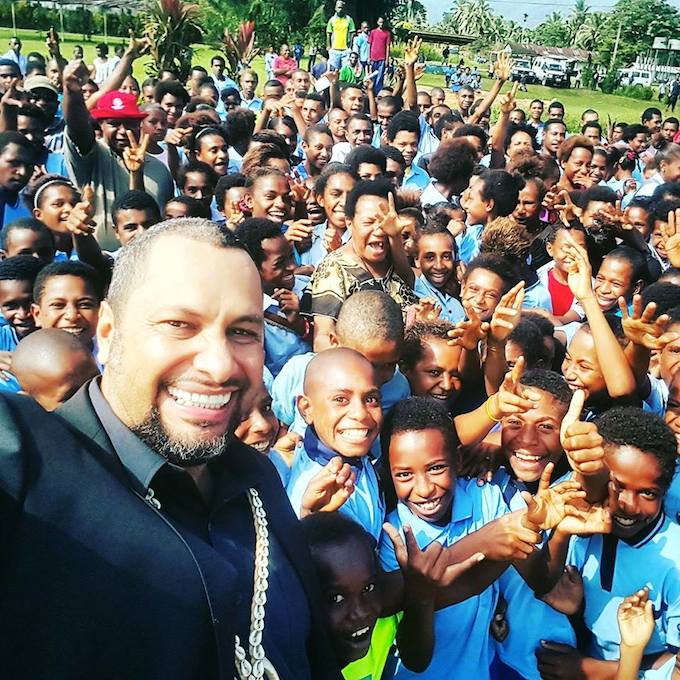
ANALYSIS: By Jess Hopkinson and Holly Driscoll
Social media is a new phenomenon which enables easy and instant access to voters. Papua New Guinea’s freedom of information is #51 on the Paris-based Reporters Without Border’s World Freedom Index and this study investigates traditional sources, social media and independent blogging websites to determine where a voter can locate quality information.
 The Papua New Guinea general election which begins next week has been impacted on by social media and provides a community platform for voters to express their opinions, and share news not found in traditional media.
The Papua New Guinea general election which begins next week has been impacted on by social media and provides a community platform for voters to express their opinions, and share news not found in traditional media.
This has aided voters because they are able learn more about the candidates. It has also disadvantaged voters because PNG journalism does use any recognised fact-checking mediums to confirm information and this leads to an ill-informed public.
There is no one completely trustworthy source of information which voters can depend on. This essay will firstly determine how this research was conducted.
Secondly, there is an abundance of candidates campaigning for this election and social media helps people learn about their policies and promises. Next, this upcoming election needs to be conducted fairly and freely so that people’s votes are counted. However, PNG does acknowledge corruption in government.
Finally, we include information gathered from interviews with local identities to determine that social media positively and negatively impacts the election.
Papua New Guinea’s elections are not regarded widely as democratically fair and free. Currently, PNG has many democratic features. It has a unicameral parliament, a Prime Minister who is the head of the elected party, a preferential voting system and conducts regular elections.
Encouraging free and fair process
The government is attempting to encourage a free and fair election process. For example, during the voting period electoral officer’s wages must be paid directly into their bank accounts rather than carrying bags of money around.
This aims to make it more difficult for officers to take bribes and for candidates to enter extra ballots and corrupt the results. This means that each individual vote gets to be counted, making the election free and fair. Former Prime Minister Sir Mekere Morauta said: “It is also important to ensure that the conduction of the election itself is free and fair and that electoral systems and processes are transparent.”
If an election is not democratic, it can breed corruption and mismanagement into the nation because votes are not counted properly and an individual can exploit the election. Currently, candidates visit voters’ homes and hand out goods such as money, food or a carton of beer to win votes.
The voters will not see the candidates again until the next election. Citizens are voting according to the free goods they are receiving instead of the policies which candidates support.
The culture of PNG elections is not focused on the future but rather immediate benefits that candidates give. PNG is aiming to improve the free and fairness within the upcoming elections however candidates are still trading goods for votes instead of good policies.
This report researches a multitude of sources of information to conclude where voters can find quality information for the upcoming election. We interviewed local Papua New Guineans to provide insight of how social media has affected the election and compares with traditional media sources.
Facebook pages are used “to educate our people about the difference between politicians and the consequences of not voting wisely”, said Northern Governor Gary Juffa, himself a major user of social media (May 25).
Community of voters
Facebook offers a community of voters who are invested in a democratic election and provides information and connections with thousands of people. In measuring the growing impact of the use of social media, we interviewed PNG locals to understand the positives and negatives of social media.
The National newspaper and the Post-Courier are two of Papua New Guinea’s top selling news sources, with The National a major advantage over its opponent’s circulation. We regularly checked these sites to gather data.
Printing presses located in Port Moresby and Lae on the opposite side of the country, enable faster distribution by road instead of expensive air freight.
However, internet usage in PNG has been increasing since 2000 from 44,887, to a predicted 906,695 users in 2016. Social media such as Facebook and Twitter provide instant news to a growing number of users and therefore are serious contenders to local newspapers who are now uploading information online.
We also collaborated information from independent blogs such as Keith Jackson & Friends: PNG Attitude and PNG Blogs. Independent blogs were essential to our research as they highlighted articles which are noticeably absent on traditional new sites.
These are popular among voters as there are always hundreds of comments and they are often linked to the platform of Facebook. Gathering information from social media, traditional sources and independent blogs has provided a wealth of information on the upcoming election.
One of the primary difficulties faced by voters in the elections in PNG is the sheer volume of candidates vying for seat. Of the 44 political parties who will be contesting for the 111 seats in Parliament, there are “2614 candidates (preliminary figure) nominated nationwide.”
In some areas of PNG, such as the Eastern Highlands province, there are 396 candidates.
Impossible for understanding
With so many candidates running for seats, voters are not able to make fully informed decisions when casting their votes as it is near impossible to develop a comprehensive understanding of each candidate and the policies they are arguing for.
However, social media allows candidates instant, rapid and easy access to share policies, promises and their personalities with voters. Paul Barker (2017) confirmed that social media is being used this election.
“Candidates and parties are devoting a fair bit of attention to the social media, as well as media and on the ground publicity,” he said.
There are still too many candidates for voters to follow. With each candidate attempting to gain attention, promises made in the run up to the election have become increasingly esoteric.
“Plenty promise to end corruption, build sealed roads and bring services to remote communities, things for which there is simply no money and sometimes no economic justification”, says ABC correspondent Eric Tlozek.
The upcoming election has 2614 candidates rallying for votes and social media is providing a platform for candidates to stand out
Social media has impacted the 2017 election and this provides both positive and negative outcomes. Locals who were interviewed agreed that social media was gaining traction among voters.
Post-Courier journalist Gorethy Kenneth said: “It is the first election where almost every party is using social media. The opposition have been using it to promote themselves and kick up controversy and the current government uses it to promote their achievements”.
Northern Province Governor Gary Juffa also says: “Social media is going to have a huge impact. It’s helping people learn and communicate far more effectively than ever before”.
Influence ‘marginal’
Countering this, Dr Susan Merrell said: ‘’I believe social media will eventually have a profound impact on issues such as elections. Now, I think the influence is marginal”.
Various ways social media benefit voters in the election includes that it creates easy and quick access for individuals with internet and voters are able to join established communities on Facebook such as PNG News, Media Monitors and The Voice of PNG.
In these Facebook groups, people are regularly documenting the progress of the election, giving their opinions on the happenings of government and traditional media and informing voters on what the media has missed.
An example of this occurred on the Media Monitors Facebook Page.
“So no official protests about PNG journalists being banned from the Australian PM’s press conference? The silence is deafening,” Bob Howarth, a former Post-Courier chief executive and publisher, wrote on April 9.
A commentor extended this thought with, “If PNG media is banned that’s an insult to our sovereignty as a country”.
From this point community members work together to uncover why this happened.
Alexander Rheeney, president of the PNG Media Council, had messaged local media stations to learn why journalists were not present at the conference. Only one news organisation replied.
“The single response from the Post-Courier did not constitute a quorum that would have compelled the council to act on their behalf”, said Rheeney, a former editor-in-chief of the Post-Courier on April 24.
Neglected issues in traditional media
Throughout the networks that Facebook creates it uncovers issues that traditional media is neglecting. Independent blog sites also reported on the banning of local journalists during the Australian Prime Minister’s visit.
The benefits of social media is that it is an easily accessible network of people who provide information and can clarify information.
Despite the benefits there is criticism that social media can lead to an ill-informed public.
Information is being spread rapidly and is not always accurate.
Rheeney said: “Both traditional media and new media in PNG continue to experience quality control issues leading to media organisations broadcasting and publishing incorrect information.”
There are currently no media which news articles or opinions are processed through. This allows articles to enter the public which are not legitimate or do not investigate issues thoroughly.
There is no one reliable source of information for voters to gather information. The current solution is for a voter to read from difference sources for political information such as social media and traditional news sources.
Dr Susan Merrell says: “I find that relying on only one is no good – you need a variety.”
Ill-informed voters ‘dangerous’
An ill-informed voter is dangerous. They may not see the benefits of voting at all or may miss the chance of voting for a leader who supports their goals or they’ve voted according to bias media, says Dr Joseph McMurray.
This means that there are wrong votes or none at all entering the election. As social media becomes a source of information for the election, it cannot be guaranteed to be accurate and a voter must consume information from multiple sources.
The social media phenomenon has introduced a new facet of information for Papua New Guinean voters for the upcoming election. The PNG election is currently battling corruption to become more democratic, the former Prime Minister has acknowledged that the election process is corrupt.
PNG is implementing reforms to create free and fairness applicable to the upcoming election. This makes freedom of information to the public essential as they need to know what is happening to their vote.
This essay gathered information from an assembly of sources including traditional media, social media sites, independent bloggers and PNG locals.
It was discovered that social media provided a platform for voters to gain information about their candidates, however it is unlikely for any voter to make an informed decision because there just too many candidates for them to gain a good understanding of their policies.
There are many benefits to a functioning social media community. This includes a network of people prepared to learn about issues which the traditional media has missed. Most people have said that social media is a great place to gather information and that it is gaining popularity.
No completely trusted
However, it is not to be completely trusted. Any article can be posted to traditional and social media websites without having to pass through any fact-checking mediums.
This is dangerous as individuals can be ill-informed and repercussions include people not voting or voting for the wrong person.
Therefore, until there are media for articles to be processed through there is no one accurate source to locate information. It is essential for voters to read a range of information to be well-informed.
The Papua New Guinea 2017 general election runs from June 24 until July 8.
Jess Hopkinson and Holly Driscoll are Community Volunteer Interns in Law/Communication at Griffith University, Gold Coast Campus.
The source list is abridged and embedded in the article. Interviews:
Barker, P 2017, PNG Interview, May 1.
Juffa, G 2017, PNG Interview, May 25.
Kenneth, G 2017, PNG Interview, May 2.
Merrel, S 2017, PNG Interview, May 28.
Rheeney, A 2017, PNG Interview, April 24.





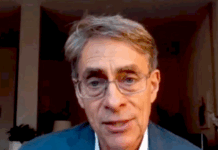
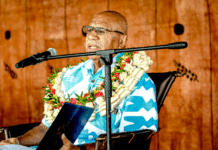
























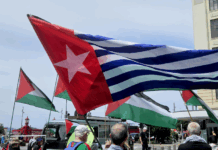
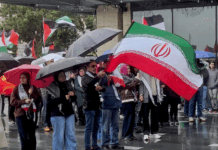














[…] Article: How traditional and social media will impact on PNG elections | Asia Pacific Report. Download this page in PDF […]
Comments are closed.